Parliament OKs new cabinet
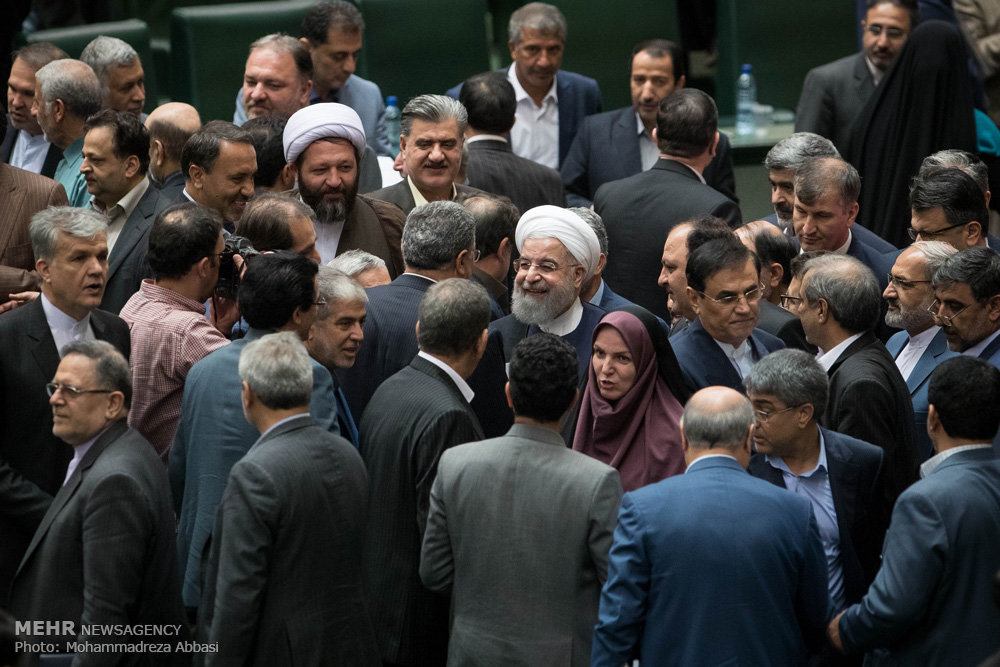
TEHRAN – Iran’s parliament capped on Sunday a week of intensive debate on President Hassan Rouhani’s 17 nominees for ministerial posts, approving all except the one for energy minister.
Rouhani handed his list of ministerial nominees to parliament on August 5, three days after he was sworn in. He delayed introducing a nominee to run the Science Ministry, naming a caretaker.
Nearly 24 million of 56 eligible voters cast their ballots for Rouhani, a moderate sexagenarian cleric, for a second four-year tenure in the May 19 election.
The parliament began debating whether to approve Rouhani’s proposed ministers on Tuesday. Rouhani said on the same day he was hoping all the picks will be granted votes of confidence.
The strongest vote of confidence, 261-10, was granted to the nominee for defense minister, Brigadier General Amir Hatami, with health, intelligence, and interior picks standing next respectively. The confidence vote was cast by 288 lawmakers in the 290-seat parliament
Plans for more accurate and destructive missiles appeared atop a priority list Hatami took to the parliament hearing on Thursday.
“The missile program is definitely one of the most important priorities of the Defense Ministry in the upcoming four years,” Hatami told lawmakers.
Also, the lawmakers voted to keep Foreign Minister Mohammad Javad Zarif, 236-26, and Oil Minister Bijan Namdar Zanganeh, 230-35, in their posts.
Zarif was Iran's lead negotiator in the landmark nuclear agreement with six world powers which removed nuclear-related sanctions against Iran in exchange for a limit on Tehran’s nuclear activities.
In his parliamentary hearing, Zarif promised to pursue an economic diplomacy to shore up national economy through prioritizing participation in regional and global markets, technological ownership, foreign investment and attraction of more tourists.
Also, a key mission for Zarif is to militate the nuclear deal against the antagonist Trump administration which has called it “the worst deal ever negotiated.”
Addressing parliament before the Sunday confidence vote, Rouhani said: “The most important duty of our foreign minister is to stand by the nuclear agreement and not allow America to succeed, not allow Iran's enemies to succeed.”
Zanganeh, credited with a boost in Iran's crude export since global sanctions were lifted last year and with a multi-billion-dollar deal with France's Total to develop South Pars, told parliament that his main priority would be investment in joint oil and gas fields with neighboring countries.
According to a master plan, Iran needs $200 billion investment in its oil and gas sector in a course of five years, more than half of which planned to come from foreign investment.
Mohammad Javad Azari Jahromi, Rouhani’s youngest ITC nominee, gathered the weakest vote, 152-120, followed by agriculture and transport picks.
Also, Habibollah Bitaraf, Rouhani’s nominee for the minister of energy, was not granted a vote of confidence, 133-132. In 2013, three of Rouhani’s picks did not garner enough votes.
Bitaraf, energy minister for eight years under the Khatami administration, came under attack by lawmakers for wrong water management policies in his previous tenures.
“Had Mr. Bitaraf taken a scientific approach during his tenure, today we would not have been grappling with dust storms and water shortage,” said Jalil Mokhtar, who represents Abadan in the parliament.
Here is a background of the approved ministers.
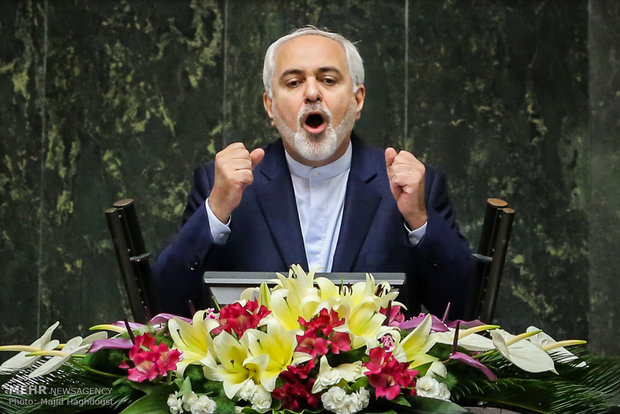
Mohammad Javad Zarif, Ministry of Foreign Affairs: Confirmed 236-26
Former UN ambassador and foreign minister, Zarif was Iran's chief negotiator on the nuclear deal reached in 2015.
In August 2013, the U.S.-educated Zarif was approved as foreign minister by a 232-36 vote. Zarif has heaped an equal share of praise and vitriol all along the way. While he was branded a “spy” during the nuclear negotiations by his dyed-in-the-wool opponents, President Rouhani awarded the “Medal of Merit” to him for the signature achievement in 2016.
Also, in 2016, Zarif and his American counterpart John Kerry won the annual Chatham House Prize for making significant contributions to improving international relations.
Zarif has the full trust of Ayatollah Khamenei, Leader of the Islamic Revolution. In one of his speeches, the Leader hailed the top diplomat as “pious and brave.”
Zarif’s intuitive use of social media is unrivaled among ministers. He continues to post consequential tweets on sensitive foreign policy issues.
In reinstituting Zarif as foreign minister, Rouhani seeks to fix strained relations with regional Arab states, particularly Saudi Arabia, accelerate the Syrian peace efforts with the aid of Russia and Turkey, and finally shield the nuclear deal against the antagonistic Trump administration.
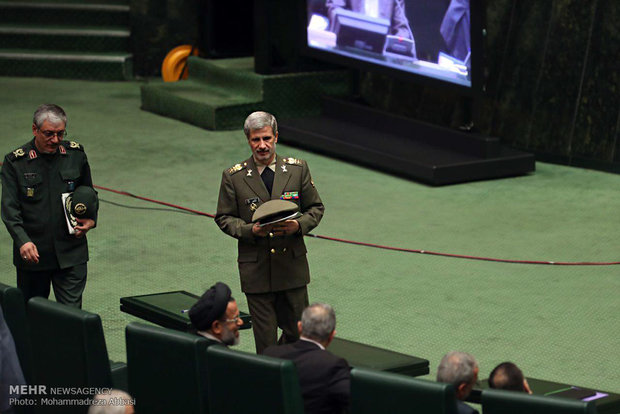
Amir Hatami, Ministry of Defense: Confirmed 261-10
The fourteenth defense minister since the 1979 Islamic Revolution, Hatami replaced Hossein Dehghan in Rouhani’s second administration.
The 51-year-old battle-hardened Hatami, is the first defense pick from the Iranian army in twenty-four years, with five of his predecessors from the Islamic Revolution Guards Corps (IRGC).
Hatami will have the responsibility to orchestrate Iranian forces against any possible threats in the beleaguered Middle East, bring about structural changes in the military in line with asymmetric, guerrilla wars.
Also, the laconic commander has to oversee a major part of the country’s missile program.
Following the recent test-launch of Iran’s first satellite-carrier rocket, Simorgh (Phoenix), Hatami proudly said Iran can now run the entire “space cycle which includes station, satellite-carrier, satellite, designing, and navigation.”
A key issue will be Iran’s increasing military cooperation with Russia in the Syrian battleground and future arms deals with Moscow.
A major focus of Iran’s Defense Ministry over the past years has been the development of unmanned aerial vehicles, a macro-policy Hatami has to continue.
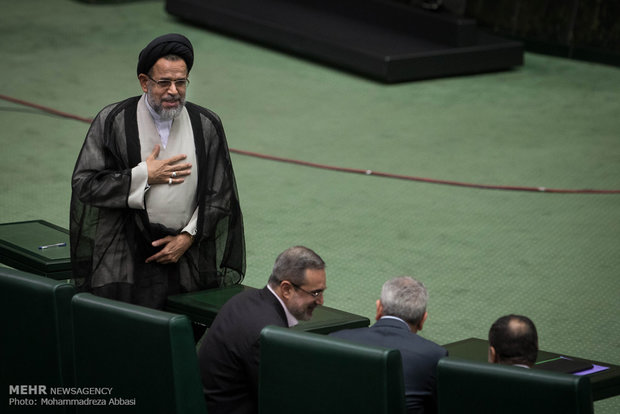
Mahmoud Alavi, Intelligence Ministry: Confirmed 252-22
Rouhani decided to keep the 63-year-old Alavi in the sensitive post. Alavi won a 227-38 confidence vote in 2013.
Prior to his ministerial position in 2013, Alavi had served as parliamentary representative for the southern city of Lamerd for 12 years.
His first tenure as intelligence minister coincided with the Islamic State ravaging through virtually the entire Middle East, particularly Syria and Iraq.
While the self-styled terrorist group struck many places in Europe and other Middle East countries, it failed to arrange such raids on Iranian soil until before June 7, 2017.
At least 16 people were killed when six attackers mounted simultaneous gun and suicide bomb assaults on Iran's Parliament building and the mausoleum of Imam Khomeini, the Islamic Republic's founder.
All ISIS-linked assailants were immediately killed, and a number of their sympathizers arrested in different hideouts across the country.
While Alavi came under indirect criticism for the events, he said upwards of a hundred terrorist efforts had been thwarted.
Just days after, Alavi said the mastermind behind the Tehran attacks had been killed by security forces.
A highlight in Alavi’s performance is June 2016 when terrorists planning to blow up 50 locations were arrested before operations in Tehran and three other central provinces.

Abbas Akhoundi, Transport Ministry: Confirmed 188-75
Rouhani reintroduced Abbas Akhoundi to lead the important Ministry of Transport and Housing.
The 60-year-old Akhoundi has a PhD degree in political economy from the Royal Holloway, University of London (RHUL).
He narrowly secured a vote of confidence from the parliament in 2013 in a 159-107 vote.
Akhoundi, a technocrat, was the minister of housing and urban development from 1993 to 1997 under the Hashemi Rafsanjani administration.
He will face a tough job for the next four years. At the wake of the international nuclear deal, he managed to forge two megadeals with Airbus and Being to renovate the country’s aging air fleet.
Also, Akhoundi has to handle the huge task of modernizing the country’s rail network.
Nearly ten provinces out of 31 lack access to railway network though first railways were built nearly a century ago.
A difficult mission for Akhoundi is to lure foreign investment into the rail industry, estimated to need approximately $25 billion by the end of the six five-year development plan (2021).
In addition to stretching the rail network, other priority projects include railway electrifications and the planned international freight route, called the North-South International Transport Corridor.
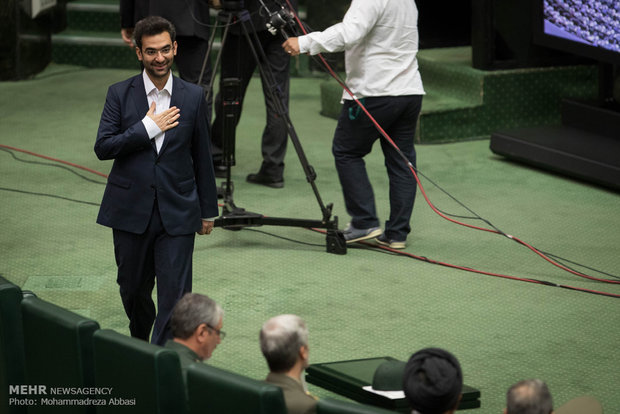
Mohammad Javad Azari Jahromi, Information and Communications Technology Ministry: Confirmed 152-120
He was the youngest proposed minister. Born in 1982 in Jahrom, Kerman province, Jahromi is a graduate of electrical engineering from the University of Water and Electricity.
Jahromi occupied a managerial position in the Ministry of Intelligence in 2002. In 2009 he moved to the Ministry of ICT.
The young official has also worked six years as director general of the Radio Communications and Regulation Organization. He has been member to the board of directors of Rightel Telecommunication Company.
He has been the CEO of Telecommunication Infrastructure Company for over a year now.

Bijan Namdar Zanganeh, Oil Ministry: Confirmed 230-35
Bijan Namdar Zanganeh held the same position in the first Rouhani administration.
He headed the same ministry from 1997 to 2005 under Mohammad Khatami. He was minister of energy from 1988 to 1977 under the Rafsanjani administration. Zanganeh was also agriculture jihad minister from 1983 to 1988.
Zangeneh was born in Kermanshah in 1953. He spent his early school years in his hometown before moving to Tehran where he received his high school diploma. He received his MSc in civil engineering from the University of Tehran in 1977 and then became a civil
engineering professor at Khajeh Nasireddin Toosi University of Technology until his retirement in 2006.
Under his leadership Iran succeeded to regain its share of the oil market after sanctions against the country were lifted based on the landmark nuclear deal, which went into effect in January 2016. Also, under his management the Oil Ministry has struck contracts with the
French Total and other contracts are on the way.
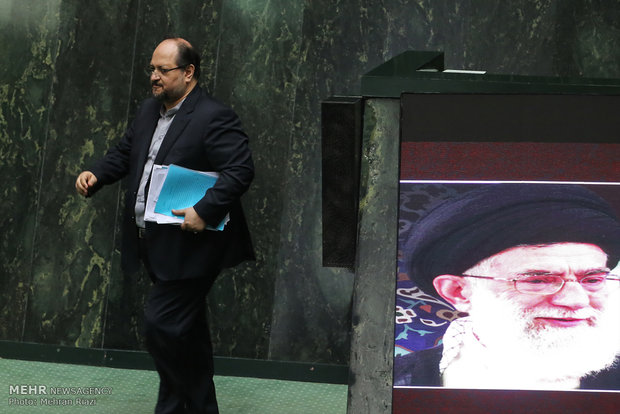
Mohammad Shariatmadari, Industries, Mine, and Trade Ministry: Confirmed: 241-25
Holding a master’s degree in commercial management Shariatmadari had been proposed as minister of industries, mine, and trade. He served as vice president for executive affairs since Rouhani took office in 2013.
Shariatmadari served as acting minister of sports and youth from October to November 2013. He was the minister of commerce from 1997 to 2005 under Khatami.
He became a member of the Central Revolution Committee following the 1979 revolution. He is among the founders of the Intelligence Ministry and served as its deputy chief.
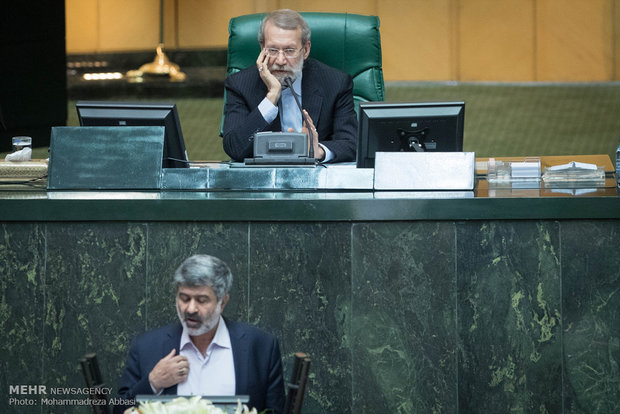
Mohammad Bathaei, Education Ministry: Confirmed 238-35
Mohammad Bathaei, the new head of the Education Ministry, is an educator and politician. He previously served as the deputy education minister. He also served as the acting minister from October 19, 2016 after the resignation of Ali Asghar Fani until November 1. Bathaei served as director of the National Strategic Monitoring Center of the Budget and Planning Organization. He has a bachelor in educational planning and management, and a master’s degree in state management.
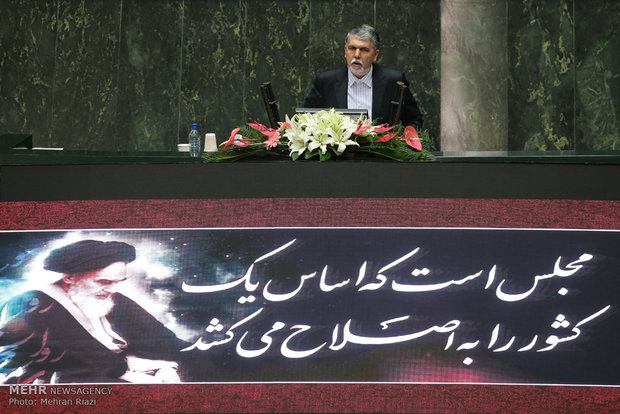
Abbas Salehi, Ministry of Culture and Islamic Guidance: Confirmed 242-25
The new minister of culture and Islamic guidance is a scholar and journalist and served as the deputy minister of culture and Islamic guidance prior to the confidence vote.
Salehi is a contributor author to the Tafsir Rahnama and has been a member of Qom Seminary's preaching affairs board of trustees.
He had received a Ph.D. in philosophy from a university linked to Qom Seminary. Salehi also served as deputy culture minister for cultural heritage and activities. He is also a cleric, but doesn’t wear the usual outfits Shia clerics do.

Rahmani Fazli, Interior Ministry: Confirmed 250-25
Abdolreza Rahmani Fazli succeeded to keep his job as interior minister in Rouhani’s new cabinet with a strong approval. Rahmani Fazli was born in Shirvan in 1959. He is a graduate of Ferdowsi University of Mashhad. He also received a Ph.D. in geography from Tarbiat
Modarres University. He served as the president of Supreme Audit Court from 2008 to 2013.
Rahmani Fazli has also served as parliament representative, deputy chairman of the national TV, deputy head of economic and international affairs at the Interior Ministry. In 2013, when he was first named as interior minister, Rahmani Fazli was given 256 votes in favor and
19 against, while 9 MPs did not attend the session.
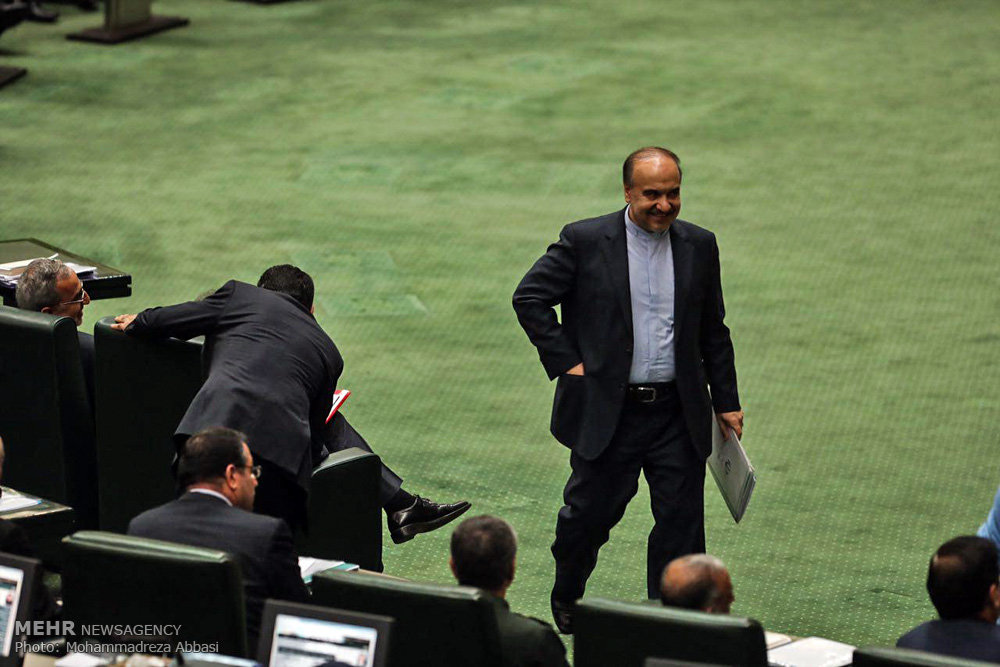
Masoud Soltanifar, Ministry of Youth and Sports: Confirmed 225-39
Masoud Soltanifar retained his position as the minister of youth and sports. He was previously head of the Cultural Heritage, Handcrafts and Tourism Organization.
Soltanifar was Rouhani's candidate for the minister of youth and sports in 2013, a nomination that was rejected by the parliament. In October 2016, he was again nominated for the position and was approved by the new parliament.
He also served as a Tehran counselor and governor of Gilan Province. He was previously deputy head of the Physical Education Organization. He has received his MA degree in political science from the University of Tehran.
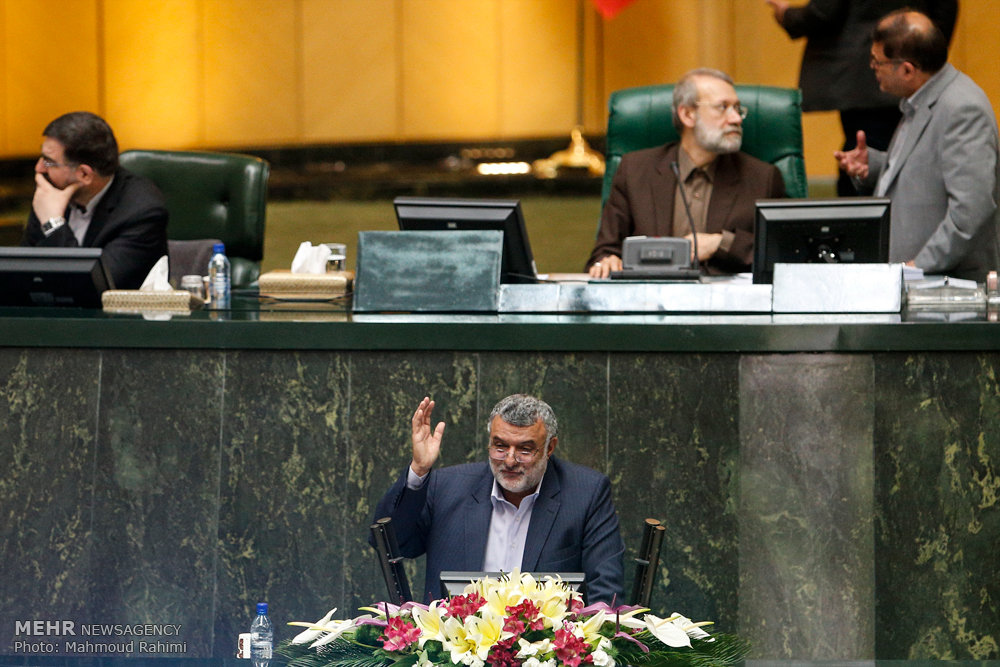
Mahmoud Hojjati, Ministry of Agriculture: Confirmed 164-94
Mahmoud Hojjati also succeeded to win the approval of parliament as agriculture minister. He held the same position in the first term of Rouhani.
Born in Isfahan in 1955, he studied civil engineering at Isfahan University of Technology. He was transport minister from 1997 to 2000 and agriculture minister from 2001 to 2005 under President Khatami. He was also governor of Sistan and Baluchestan Province from 1989 to 1994.
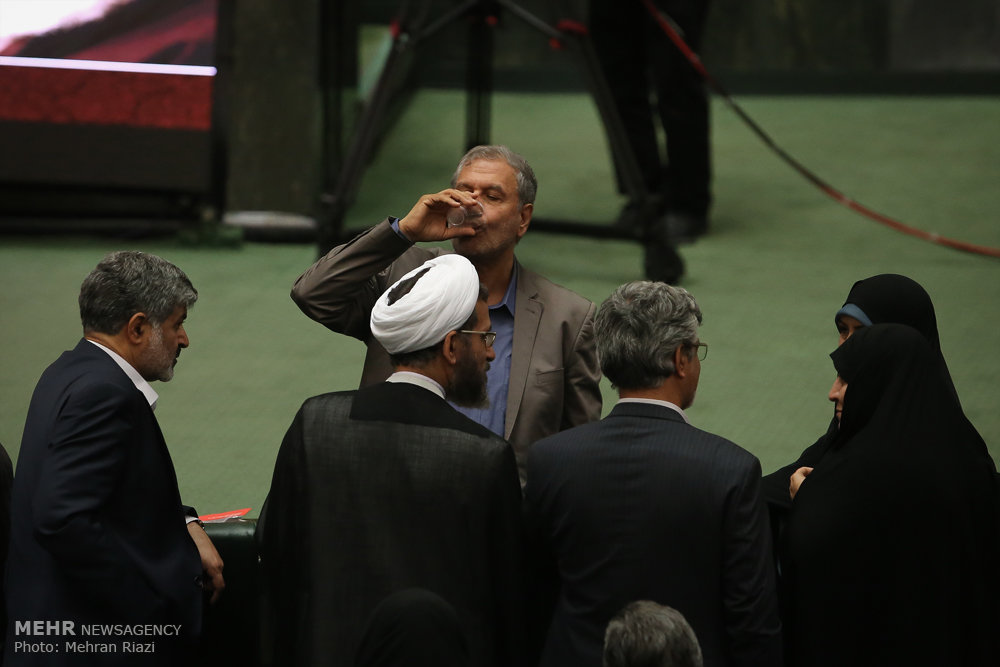
Ali Rabiei, Ministry of Labor: Confirmed 191-79
Ali Rabiei had been proposed as labor minister, a post he held in Rouhani’s first administration. He was born in Tehran in 1955. He studied state management at the University of Tehran. He holds a master’s degree in sociology and Ph.D. in strategic management.
He was advisor to President Mohammad Khatami for social affairs from 1997 to 2005. He was also head of the presidential secretariat for homeland security committee at the Supreme National Security Council from 2002 to 2005, at the time the body was headed by Hassan Rouhani.
Rabiei was also deputy intelligence minister for parliamentary and legal affairs from 1987 to 1993. He is also a professor sociology, politics and economy at Tehran University.

Hassan Ghazizadeh Hashemi, Ministry of Health and Medical Education: Confirmed 253-18
Hassan Ghazizadeh Hashemi had been proposed to hold the position of health minister as in Rouhani’s first administration.
He is the architect of the “health evolution plan” also known as “Rouhani-Care”, a plan worked out to reform Iran’s healthcare system.
Born in Fariman in northeastern Khorasan Razavi Province in 1959, he studied general medicine and ophthalmology at Mashhad University of Medical Sciences. He undertook cornea fellowship at Shahid Beheshti University of Medical Sciences.
He had served as advisor to Science Minister Mohammad Farhadi from 1997 to 2001.
Ghazizadeh Hashemi is also head of Noor Ophthalmology Complex, which he founded in 1993 and a co-founder of “Nooravaran Salamat Charity Foundation”.
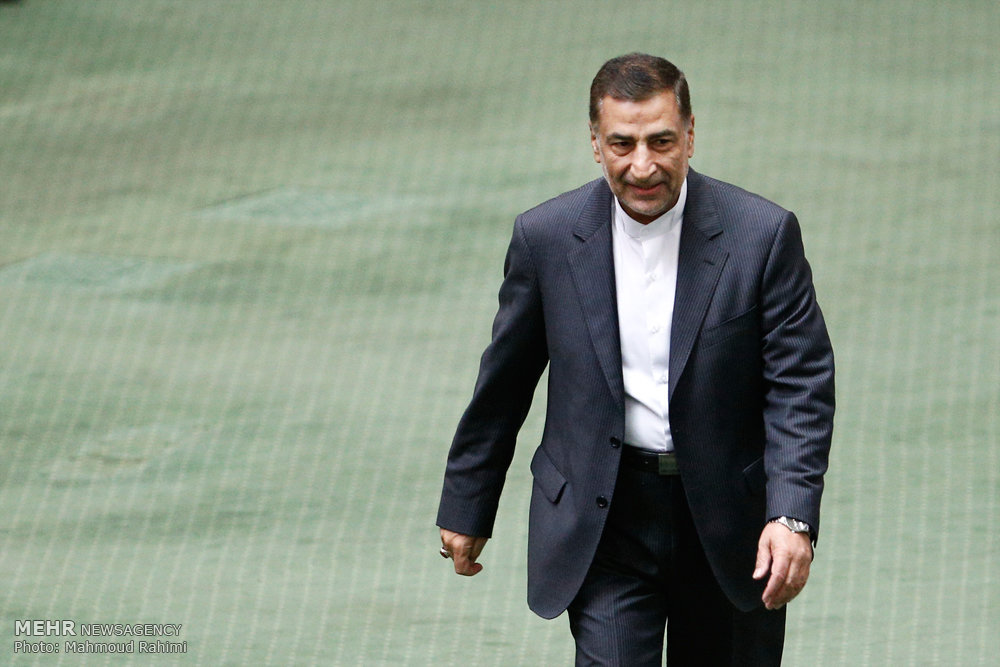
Alireza Avaie, Justice Ministry: Confirmed 244-18
Alireza Avaie had been proposed as minister of justice in the new Rouhani cabinet. A native of the southwestern city of Dezful, he received an MA degree in private law from the University of Tehran.
He was prosecutor general of Dezful in 1979 and held the same position in Ahwaz in 1988. He was also the head of the department of justice in provinces of Lorestan, Markazi and Isfahan in 1994, 1998 and 2002 respectively. He held the same position in Tehran from 2005 to 2014.
He was a judge of the Supreme Court and the deputy interior minister in 2014.
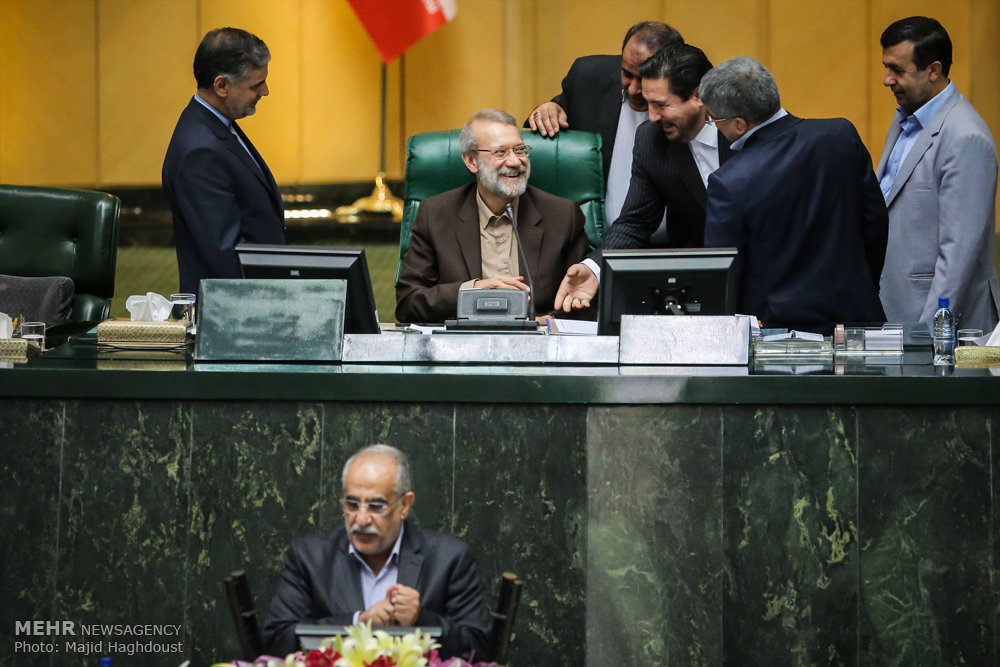
Masoud Karbasian, Ministry of Finance and Economic Affairs: Confirmed 240-31
Karbasian had been nominated as minister of finance and economic affairs.
He had been acting as deputy economy minister and head of the Customs Organization under incumbent Economy Minister Ali Tayyebnia. Karbasian has also served as deputy minister of trade.
Karbasian holds a PhD in commercial management. He has acted as top advisor to mayor of Tehran, head of domestic trade at ministry of trade, director of trade at Ministry of Petroleum, director of foreign trade at Ministry of Trade, director of planning at Ministry of Trade, and head of economic affairs and trade at Ministry of Heavy Industries.
